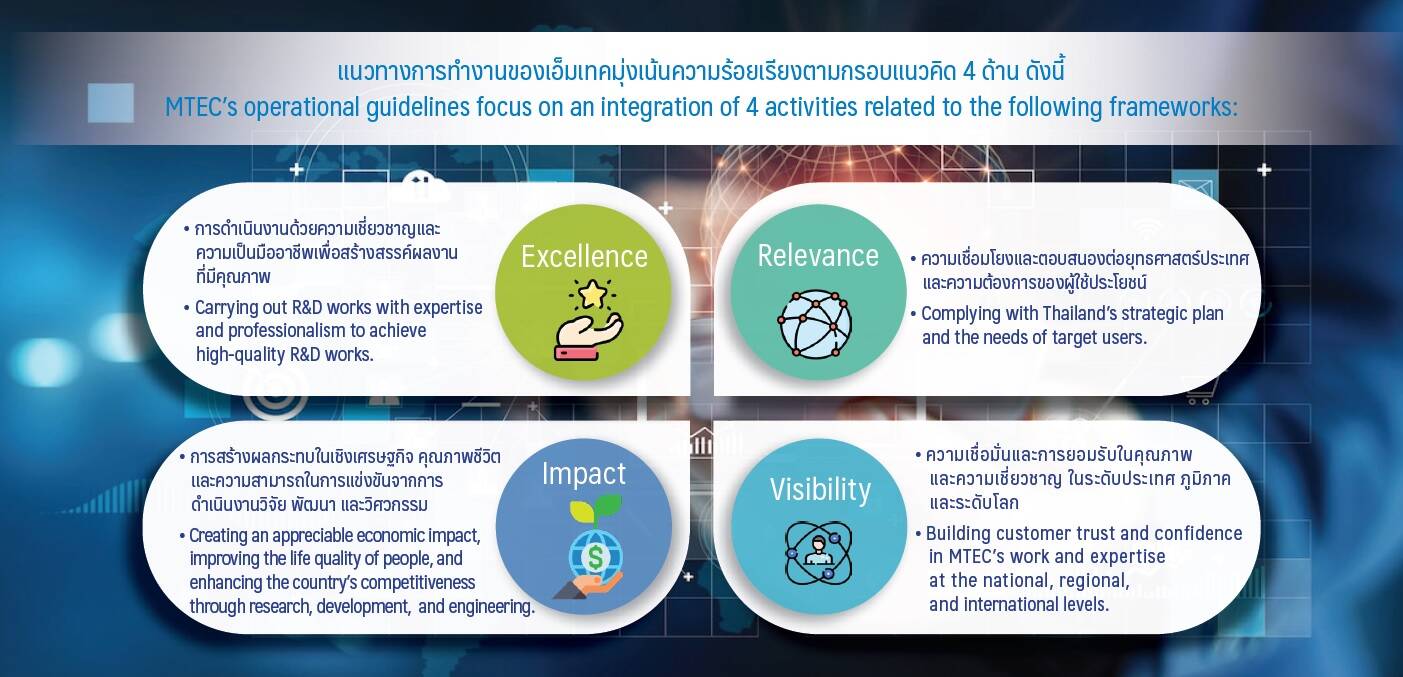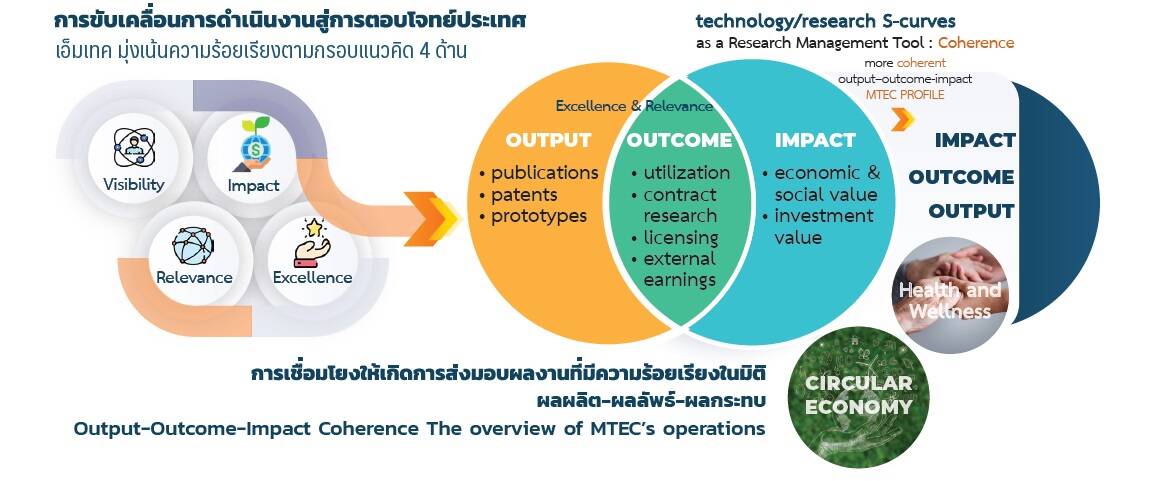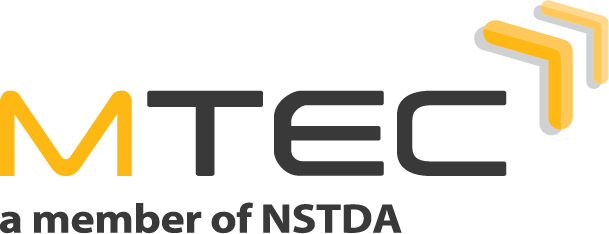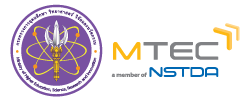About MTEC

About MTEC
The National Metal and Materials Technology Center (MTEC) was established by the Cabinet Resolution on September 16, 1986. MTEC’s primary objective is to support research and development in metals and materials technologies. On December 29, 1991, MTEC became a member of the National Science and Technology Development Agency (NSTDA), Ministry of Science, Technology and Energy (then).
Vision
Driving technology and innovation in materials to address key challenges and meet user requirements, both commercial and socio-community development.
Mission
MTEC develops and builds capabilities in materials technologies through various activities as follows:
- Performing research and development (R&D) activities and fostering innovations through collaborative and contract research with the industry and other sectors, as well as carrying out research to prepare for future challenges.
- Managing technology transfer for practical uses to create positive socio-economic impacts on the country, and providing consultancy services related to manufacturing problems for the manufacturing and service sectors.
- Developing human resources and essential science and technology infrastructure.
Core Values
Nation First
|
Act in nation’s best interest, be socially responsible and dedicated to the common goal |
Science and Technology Excellence
Committed to excellence, culminating from curiosity, initiative and creativity, in every aspect with the highest standards
Teamwork
Work cooperatively, be open to criticism and play a constructive role, subscribe to two-way communication
Deliverability
Deliver quality output as promised, contribute to a stimulating and agile workplace
Accountability
Adhere to morality, ethics and transparency; stand up for a good cause
Operational Guideline

MTEC adheres to its missions in conformity with the National Science and Technology Development Agency’s 7th Strategic Plan (2022-2027), which is linked to Thailand’s 20-Year National Strategic Plan (2018-2037) and various master plans, such as the BCG Economic Model (Bio-Circular-Green Economy) and 20-Year Research and Innovation Strategy (2017-2036). MTEC will take advantage of high technology infrastructure, especially the Eastern Economic Corridor of Innovation (EECi), to meet the needs of various sectors, solve problems, and help businesses develop their products and services. All of these are expected to contribute significantly to positive socio-economic impacts.
MTEC’s operational guidelines focus on an integration of 4 activities related to the following frameworks:
- Excellence: carrying out R&D works with expertise and professionalism to achieve high-quality R&D works.
- Relevance: complying with Thailand’s strategic plan and the needs of target users.
- Impact: creating an appreciable economic impact, improving the life quality of people, and enhancing the country’s competitiveness through research, development, and engineering.
- Visibility: building customer trust and confidence in MTEC’s work and expertise at the national, regional, and international levels.
MTEC’s research works have covered the development of materials technology, design and manufacturing technology, and infrastructure development that is crucial to the development of the country. MTEC places great emphasis on interdisciplinary research and development and technological capability enhancement to generate new knowledge and serve the needs of the country in response to the rapid changes in technologies.
Operational Mechanism
MTEC has developed its management system by creating a technology development plan and research S-curves, which is a tool that assists in research management, resource allocation, and works planning both in the research and support sections. MTEC has focused on research planning that is consistent with the national strategy and solves the country’s urgent problems to enhance the generation of knowledge and the enhancement of capability in response to the rapid changes in technologies.
MTEC has delivered outputs, such as academic works, research articles, prototypes, and intellectual property. These works lead to outcomes which are the utilization of the outputs in various forms, both in commercialization and public interest, through the technology transfer, contract, and collaborative research, thus leading to impact and investment in both economy and society. The domains of utilization are categorized into 5 major groups, namely, Manufacturing and Engineering Services Industry, Safety and Quality of Life, Health and Wellness, Agro-based Industry, and Agriculture. MTEC has highlighted the main point of the Circular Economy, Health and Wellness, which is the country’s problem, and determined it as the national agenda; the BCG economic model (Bio-Circular-Green Economy Model) and the Industry 4.0 to enhance the competitiveness of the industry, production, and services.

In addition, since 2020, the budget reform by allocating from Thailand Science Research and Innovation Fund in place of the Budget Bureau poses a challenge to MTEC which must adapt its research management processes in alignment with the external funding sources and the country’s research budget system. MTEC, therefore, have formed a strategic alliance with both domestic and international research institutions, thus creating opportunities to support research budgets in the form of large projects from various funding sources, and improving internal management processes, especially the adjustment of mechanism to support the research management process to achieve flexibility for the rapidly changing situation.




